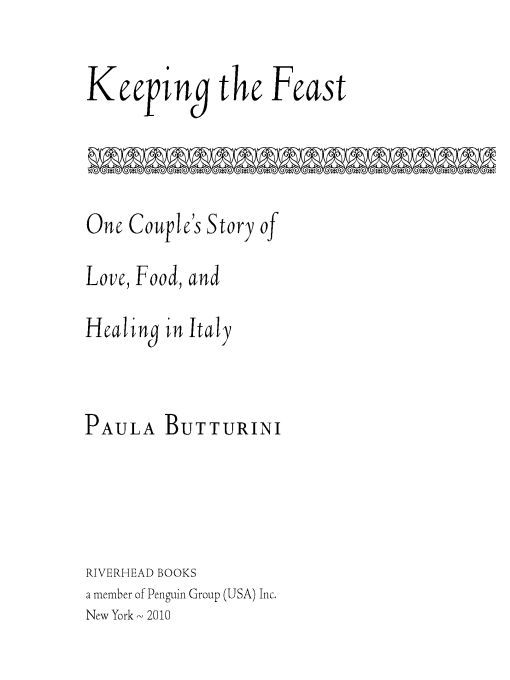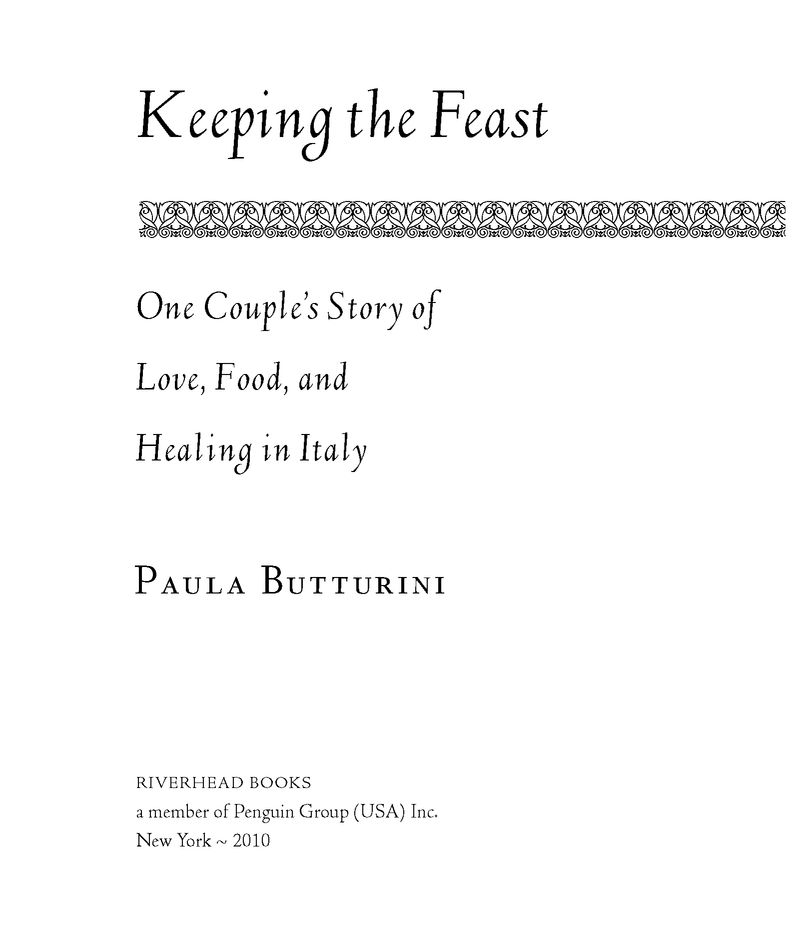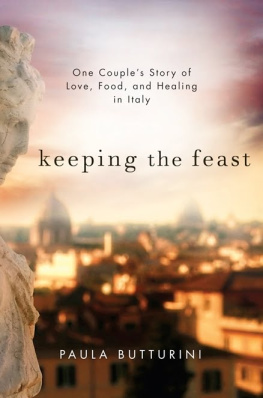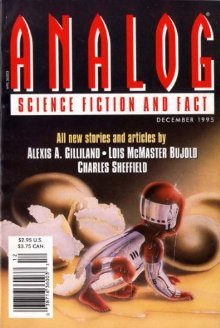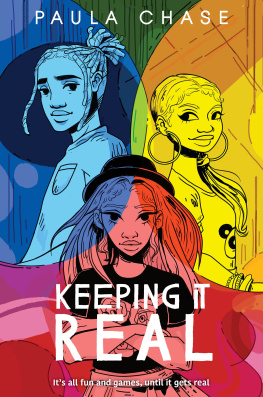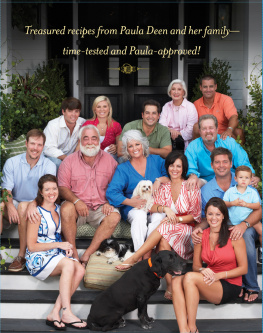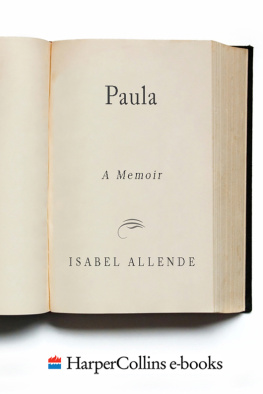Table of Contents
For Julia, Anna, and Peter, and, of course, for John
Therefore let us keep the feast, not with old leaven, nor the leaven of malice and wickedness, but with the unleavened bread of sincerity and truth.
1 Corinthians 5:8
Prologue
Two ghosts. That was how a friend later described us when we returned to Rome in 1992. John and I had been away five years, and though neither of us knew it at the time, we returned, I think, because Rome seemed the most likely place to recuperate and cast out the demons we had picked up in our absence.
We moved into a small apartment near the Tiber on one of those golden October days so perfect that you could never imagine willingly leaving the city again. Every morning I would walk down our narrow street toward the hubbub of Campo dei Fiori, where the flower sellers, the fruit vendors, the vegetable sellers, the fishmongers, the mushroom lady, the bread shop, the lamb and chicken lady, the pork butcher, the notions man, the meat vans, the olive and herb vendors, the newspaper kiosk, the housewares stand, and the roving garlic salesmen from Bangladesh were always open for business no matter how early I awakened.
Morning after morning for an entire year, I walked to the Campo before most people were up. Noisy, honking, shouting Rome is almost quiet at that hour, and what began as a simple routine soon took on the trappings of ritual. I woke up early, dressed, walked out the door and over to the Campo. I would buy a shiny, plump purple-black eggplant. Or a handful of slender green beans, so fresh and young you could eat them raw. I bought three golden pears, or a heavy bunch of fat, green grapes. I bought a few slices of Milanese salami, a bit of veal. I bought a thin slab of creamy Gorgonzola, to spread on crusty, still-warm bread. I bought milk, yogurt, butter, and eggs, and finally the newspapers. Then I would head home, stopping in the tiny church of Santa Brigida, which lay halfway between the Campo and our apartment. The first few months, I would rest my bundles on the cold marble floor, kneel for a moment at the back of the church under the gaze of a painted Madonna, and try not to cry. Months later, I would still kneel for a moment in the same spot, but when I felt the tears coming, Id make a fist and pound once or twice on the pew in front of me. It made a fitting, hollow sound in the almost empty church. Then I would collect my bundles and continue my short walk home.
I needed both parts of the ritual, the buying of the food and the stopping in the church. We all must eat, and there is nothing more normal than buying the food that keeps us alive. When I performed the ritual of buying our daily bread, the world seemed more normal. Pounding a pew a few minutes later brought home how far from normal I still felt.
Though the name means Field of Flowers, Campo dei Fiori has not been a meadow since Pope Eugene IV ordered the field scythed and cobblestoned in the 1430s. These days the only flowers are the cut variety on sale at one end of the square and a few pots of scraggly geraniums and shrubs outlining the sidewalk cafs and trattorie and pizza joints that ring the piazza. Since the fifteenth century the Campo has been a horse market, a way station for pilgrims who thronged its Renaissance hostelries, and a place of torture and execution for those branded heretics by the Holy Roman Inquisition. Only since 1869, after the popes temporal powers had finally been checked, has it been transformed into a public marketplace.
Today money changes hands under a patchwork canvas ceiling of gigantic umbrellas and tarps that protect the produce from Romes fierce sun. The flower sellers jam their lilies, mums, dahlias, daisies, freesia, eucalyptus, sweet williams, and roses into plastic buckets and vases, enough to form a wall of flowers toward the western end of the square. All the other vendors display their wares willy-nilly, piled high in bursts of brilliant colors atop weather-beaten wooden carts or sawhorse tables. When business is slow, and often when its not, the vendors converse in deep-toned shouts with their competitors or the crowd.
From shortly after dawn till shortly after lunchtime, unruly knots of shoppers (I doubt the Campo has ever seen an orderly line, even for a hanging or a burning at the stake) jostle for position around the stands to choose the makings for their next meal. By one-thirty p.m. business is finished for the day and the vendors begin packing up their stands, tossing their rotten tomatoes, molding lemons, festering zucchini, and wilted greens onto the gray cobblestoned pavement. They leave hills of battered produce and mountains of the wooden crates used to haul their daily stocks from the citys wholesale market.
At that point, when the Campo looks like a garbage dump, cleanup crewssome plying medieval-looking willow brooms or plastic-fronded imitations, others maneuvering ultramodern street-washing trucksvacuum up and hose down the chaos. Walk through the Campo about three p.m. and, except for a lingering smell of seafood on the eastern edge of the square, a visitor would have no idea that this was anything other than a large, lovely Roman piazza, about the size and shape of a football field, with a ceremonial fountain splashing at one end and a looming, hooded statue standing in its center.
At first glance Rome often seems all turmoil and frenzy. But time reveals a gentle side, too, a city of measured pace and rounded edges, a place not just of sun and heat, but of color and grace, whose comforts can outweigh its chaos. When we returned to Rome, ghostlike, in 1992, we were longing for those comforts, that blend of light, warmth, food, beauty, and friendsthe very elixir that had nourished and protected us before our jobs as foreign correspondents called us off to cover the collapse of communism in Eastern Europe. We had taken a battering during our five years away. Italy seemed the place to try to get over it.
Both of us had lived essentially fortunate lives before we met in Rome in 1985, when I was thirty-four and John was forty-three. We lived four essentially joyous years afterward, deeply grateful to have found each other. Only then, just after the Berlin Wall fell in 1989, were we sucked into what I came to think of as our own private tornado. Though I dont believe the maxim that trouble comes in threes, I suspect that consecutive blows make it harder to rebound, easier to be dragged into a downward spiral. Our troubles began with a police truncheon in Czechoslovakia, two weeks before our wedding, and a bullet in Romania three weeks after. Infection, illness, and a family tragedy followed, and finallythe result of all that had come beforea long, slow slide into textbook depression.
I know that bad luck falls to everyone sooner or later. Ours simply hit especially hard, and lasted unusually long. This book recounts our troubles and how we found our way around them. It describes the simple strength we discovered in the one wild card we possessed: our love for Rome and the rituals we clung to there, all involving nourishment of one sort or another. These rituals of feeding and eatingrooted in our warmest memories from childhood and reinforced by our years in Italyhelped heal and strengthen us, allowed us to regroup. We cling to them still to ensure our future.
Like memory itself, this book wanders back and forth between old recollections and new. Food is the thread that connects them, for food has always been my lens and prism, my eye on the world. I may write about the smell of asparagus, the color of polenta, or the taste of figs still warm from the sun, but all of it is a personal shorthand for weighing hunger and love, health and nourishment, secrets and revelations, illness and survival, comfort and celebration, and perhaps above all, the joy and gift of being alive.

